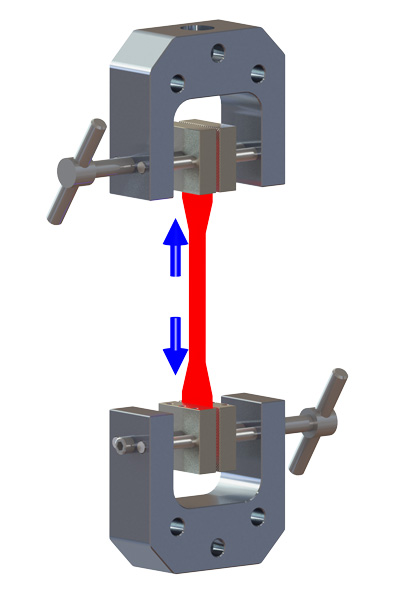Screw grips are used for tensile tests of different materials. The prepared specimens are clamped between the upper and lower holder and pulled at a constant speed until the yield point is reached and the material breaks.
In the case of flat material, a specimen that is tapered in the middle is usually punched out. This is to prevent the material from being torn out at the crushing edge of the grips. The opposing jaws are individually adjustable.
This allows asymmetrical specimens to be clamped, e.g. when testing the strength of connections between two components. If the tensile test is performed on round material (rods or wire), V-shaped jaws with fine transverse serration can be used instead of flat jaws. When using bolt tensioning heads, the change in length can be recorded indirectly at the crosshead, as the closing angle is offset by 90° in relation to the force axis. In contrast to wedge grips, however, the clamping force does not increase during the tensile test.
Therefore, bolt tensioners of the FMT-711 series are usually used for lower tensile forces up to max. 2500N. This series is available in variants with maximum opening widths from 10 mm to 50 mm.
By selecting the correct clamping jaws, which are offered in widths from 30 mm to 80 mm, the material sample can be held securely. Under the item number FMT-710 you will find a large selection of different clamping jaws for your tensile test.

Got a question about this solution?
Get in touch and speak to one of our Technical Sales Engineers now...
